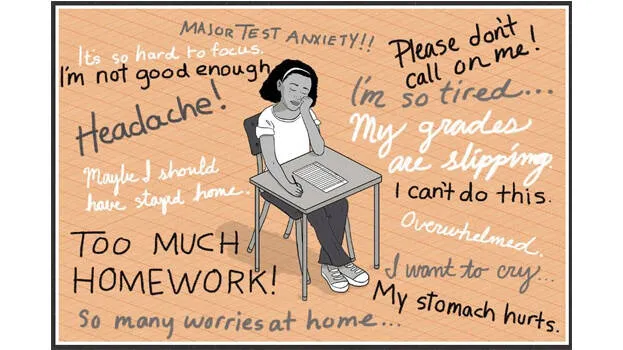

In the wake of the rising suicide rate among students, the Supreme Court has issued some very important guidelines to ensure mental health care in educational institutions. The bench of Justices Vikram Nath and Sandeep Mehta said in its judgment that these guidelines should be considered as the law of the land until an official law is made. The court's crucial intervention came while considering the case related to the suicide of a 17-year-old student of Aakash Byju's Institute in Visakhapatnam in July 2023 while preparing for the medical entrance exam.
The father approached the Supreme Court after the Andhra Pradesh High Court rejected his petition seeking a CBI probe into his daughter's death. The Supreme Court, which overturned the High Court's verdict, ordered the CBI to take over the investigation. The court also observed that the National Crime Records Bureau's figures on suicides in the country are deeply disturbing. The court also assessed that these figures indirectly point to a deep and structural illness affecting the country's education system. According to the figures, 1,70,924 suicides were reported in India in 2022. Of these, 7.6 percent - i.e. 13,044 - were students. Of these, more than 2,200 - deaths were due to failure in exams.
These figures prove that educational institutions have failed to ensure the emotional and mental health of students. Therefore, the court has directed that all educational institutions should formulate a unified mental health policy and that these policies should be updated annually and made available to the public. At least one qualified mental health professional should be appointed in institutions with more than 100 students. It can be a psychologist, counsellor, or social worker. There should be referral systems for small institutions. The practice of coaching centres and schools separating students into batches based on performance should be stopped. This practice is prevalent in most coaching centres in the country. This should no longer be the case, the court has said.
In addition to all this, training should be provided to all employees twice a year. Sensitive interaction with different sections of students should be included in the training. Mechanisms should be put in place to inform the authorities immediately in case of caste, gender, religious, or sexual harassment, ragging, etc. Sessions should be organised to avoid academic stress, and parents should be present in them. The high court has put forward constructive suggestions such as encouraging extracurricular activities, career counselling and taking steps to reduce exam stress. Since the court has said that these guidelines will be in effect until the Parliament and the state legislatures enact comprehensive laws, it is expected that educational institutions and coaching centres will be forced to implement these guidelines without delay.